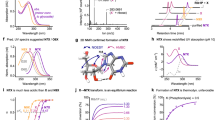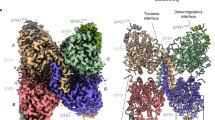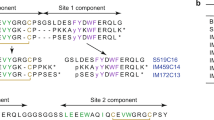Abstract
IN a letter to NATURE for June 16, p. 810, Messrs. Winter and Smith directed attention to their observation that the blood and certain other tissues of the rabbit contain, after injection of insulin, a substance which reacts as a carbohydrate towards the α-naphthol test, but has no reducing action on copper salts even after acid hydrolysis. Commenting on this they say: “It seems possible that the carbohydrate content of the animal body may be not appreciably diminished after large doses of insulin. The above facts would suggest that the sugar stored in the body as glycogen is converted into this peculiar form.”
This is a preview of subscription content, access via your institution
Access options
Subscribe to this journal
Receive 51 print issues and online access
$199.00 per year
only $3.90 per issue
Buy this article
- Purchase on Springer Link
- Instant access to full article PDF
Prices may be subject to local taxes which are calculated during checkout
Similar content being viewed by others
Author information
Authors and Affiliations
Rights and permissions
About this article
Cite this article
BERKELEY, C. Is the Pentose of the Nucleotides formed under the Action of Insulin?. Nature 112, 724–725 (1923). https://doi.org/10.1038/112724b0
Issue Date:
DOI: https://doi.org/10.1038/112724b0
This article is cited by
-
Insulin
Ergebnisse der Physiologie (1925)
Comments
By submitting a comment you agree to abide by our Terms and Community Guidelines. If you find something abusive or that does not comply with our terms or guidelines please flag it as inappropriate.



